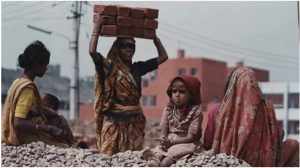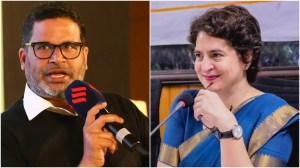On the anniversary of his martyrdom, with caste emerging as a key issue this poll season — the Opposition has been pressing for a national caste census, while the Narendra Modi government claims to have given adequate representation to the marginalised — here is a look at Bhagat Singh’s views on caste and untouchability, which are far less known than his contribution to the freedom struggle and his views on atheism.

Singh was one of the earliest freedom fighters to take up the question of caste, converging with B R Ambedkar on some points while diverging with him on others.
He discussed untouchability at length in an article written in June 1928 for the left-wing publication Kirti, taking a line radically different from that of the Arya Samaj, whose Dalit outreach involved the practice of shuddhi (purification) to integrate the ‘untouchables’ into Hindu society. Part of the Arya Samaj’s concern — as also of Mahatma Gandhi since the 1930s — was that unless ‘upper castes’ could be persuaded to accommodate in Hindu society the Dalits, the latter would convert to other religions while also breaking ranks with the largely upper caste-led freedom struggle.
Deviating from this line, Singh saw one positive aspect in the competition between religions — all religions had to ‘accommodate’ the ‘untouchables’ to enhance their numbers. “There is a lot of choice. The Christians are enhancing their status silently. In any case, it is good that at least a curse on the country is becoming lighter because of these developments,” he wrote in Kirti.
Taking a line similar to Ambedkar’s ‘autonomous’ Dalit politics, Singh wrote, “The problem would not be resolved as long as the castes, which are categorised as Untouchables, do not organise themselves. I think their asking for equal rights on account of their having formed separate outfits… is an encouraging sign.”
“I propose they should have their own representatives (in the legislatures) so that they can demand their rights. I say clearly, ‘Rise, O brothers, the so-called Untouchables, the real servants of the people, rise. You were the real might of the army of Guru Govind Singh. Shivaji could do so much that his name shines even today only with your help’,” he added. “Your sacrifices are written in letters of gold… People, they say, understand power — that means organise, unite and challenge the whole world. Then nobody would deny you your rights. Don’t be fodder for others. Don’t look towards others for help.”
Story continues below this ad
However, he added a nuance that broke with Ambedkar’s autonomy line, when he insisted that Dalits should stay clear of the British colonial state: “But beware of the bureaucracy. Don’t fall prey to their deceit. It does not want to help you. It wants to make you its pawns. In fact this bureaucracy and the capitalists are the cause of your slavery. Therefore, never join them.”
The relation between Lala Lajpat Rai and Bhagat Singh was a complex one. Though Singh had serious reservations about Rai joining the Hindu Mahasabha, he was fair to the Congress leader on the Dalit question. Referring to a debate at a Hindu Mahasabha conference in Patna, on whether untouchables had the right to wear the sacred thread and read the Vedas and the Shastras, Singh acknowledged Rai’s contribution: “Lalaji intervened and saved the honour of Hinduism by making them accept both the things.”
Shunning all purification rituals across religious communities, Singh advocated the full and unconditional integration of Dalits in society: “We should make them part and parcel of our communities without asking them to take amrita (nectar), read the kalma (Islamic chants) or go for shuddhi (purification)… It is not proper to indulge in a tug of war to draw them to our side without giving them rights in real life.”
In the article, Singh launched a scathing critique of karma theory, which, he said, was used to justify Dalit subjugation. “Our Aryan forebears treated them unjustly… This could make them revolt, they feared, so they propounded the philosophy of punarjanma (rebirth). You are what you are because of the karmas (actions) of your previous birth.”
Story continues below this ad
Despite his impeccable nationalist and anti-imperialist credentials, Singh turned his gaze inwards when he asked how Indians could complain about bad treatment meted out to them in western countries, when they were not willing to offer equality to ‘untouchables’. He wrote that while Indians thought the West was ‘materialist’ while India was ‘spiritual’, all the spirituality that kept Indians occupied with questions of soul and God had not succeeded in making them treat human beings as equal. He asserted that the caste system was against ‘development’, as it lacked the universal requirement of dignity of labour.































